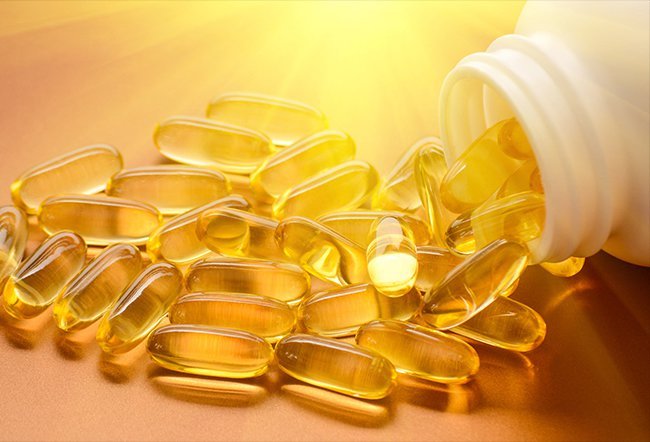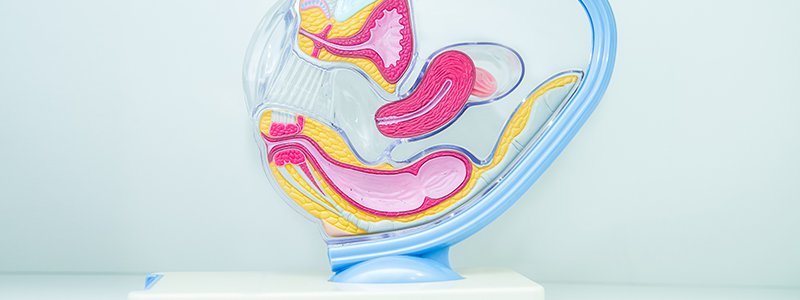
Vaginal dryness occurs naturally with increasing age when the estrogen levels deplete.
Vaginal fluid or lubricant is mucus that is produced in the vagina. The hormone estrogen is responsible for the production of vaginal fluids and maintains the appropriate thickness of the vaginal lining.
Vaginal fluid or lubricant maintains:
- Vaginal health
- Prevents infections
- Helps move sperm
- Reduces the friction in the vaginal wall during sex
What are the symptoms of vaginal dryness?
The symptoms of vaginal dryness can vary, and a woman may not feel them all at the same time.
The most common symptoms include:
- Dryness, stinging, burning, or itching in the vaginal area
- Loss of libido or sexual interest
- Discomfort during intercourse
- Lubrication is reduced during intercourse
- Bleeding following intercourse
- Urinary tract infections
9 vitamins for vaginal dryness
Both hormonal and nutritional factors can influence vaginal secretions. When it comes to vaginal health, proper immune activity is crucial.
- Vitamin B complex
- Vitamin B complex, a supplement, contains all eight forms of vitamin B and promotes immune function.
- Vitamin B can be consumed as a supplement or absorbed through foods, such as poultry, fish, potatoes, and bananas.
- However, too much might be hazardous. It can cause muscular weakness, gastric problems, and painful sores.
- Vitamin D
- When you are exposed to sunlight, skin cells naturally synthesize vitamin D (the sunshine vitamin).
- According to research, vitamin D may aid in vaginal lubrication.
- Some studies reported that taking vitamin D pills or using suppositories may help with vaginal dryness and wellness throughout menopause.
- Using vitamin D as a suppository for eight weeks improved the production of vaginal lubricant.
- Vitamin E
- Vitamin E comprises eight fat-soluble antioxidant-rich components. It is important for eye, brain, and skin health, but it may help with lubrication and alleviate vaginal dryness.
- Research reported that using a vitamin E suppository for 12 weeks increased the health of the vaginal walls.
- Other studies found that using vitamin E suppositories and other supplements containing vitamin D and A relieved symptoms of vaginal atrophy in cancer patients.
- Omega-3 fatty acids (fish oil)
- Studies reported that omega-3 fatty acids may improve lubrication, particularly during menopause.
- Omega-3 fatty acids may help hydrate and moisturize the skin.
- A study on 52 postmenopausal breast cancer survivors, who consumed 3.5 grams of omega-3 fatty acid daily for six months, had improved vaginal dryness.
- A study suggested that omega-3 fatty acids may enhance estrogen levels and improve vaginal lubrication.
- Hyaluronic acid
- Hyaluronic acid is a natural chemical that is commonly used in skin care products due to its important function in skin health. However, it is available as an over-the-counter supplement.
- It can now be used to increase vaginal lubrication.
- A study with 42 postmenopausal women, who were administered 5 mg of hyaluronic acid sodium salt for eight weeks, reported that participants had improved vaginal lubrication.
- A supplement containing hyaluronic acid and other components, such as vitamins A, C, and E improved vaginal dryness in a trial of 28 young women.
- Sea buckthorn
- Sea buckthorn is a plant that contains a variety of vitamins and active compounds that are used in medicine to help halt the aging process.
- Furthermore, the sea buckthorn plant generates oil that is used to treat many skin diseases such as eczema, acne, and wrinkles.
- According to current research, this rich oil may protect against water loss and strengthen the vaginal membrane.
- A three-month trial of 116 postmenopausal women found that consuming three grams of sea buckthorn oil daily improved vaginal lubrication and elasticity.
- The necessary fatty acids in Sea buckthorn oil improve vaginal tissue integrity.
- Probiotics
- Probiotics have long been recommended for their benefits to gut health. However, a new study reveals that probiotics may benefit vaginal conditions.
- The restriction of the proliferation of probiotic bacteria in the vagina can result in vaginal dryness, atrophy, and the possibility of vaginal infection.
- Oral probiotic usage may maintain vaginal health by avoiding a reduction in the protective vaginal flora, which may cause dryness and discomfort.
- DHEA
- Estrogen regulates the female reproductive system, and dehydroepiandrosterone (DHEA) is an essential estrogen source.
- DHEA is produced by the body and the production increases when you are 10 years old, peaks in your 20s, and then begins to fall.
- Research suggests that daily use of suppository DHEA, 6.5 mg for 12 weeks, helped alleviate vaginal dryness in females.
- A lack of sex drive can leave your vagina dry.
- Research suggests that DHEA may help keep your libido constant.
- Boron
- Boron is a nonessential mineral. However, it may be found in leafy greens, prunes, raisins, almonds, and coffee.
- Although it is unclear how boron might help your health, some study has connected it to sex hormones.
- Research published in 1987 reported that blood estradiol levels increased dramatically in women who got boron supplements, particularly those who maintained a low-magnesium diet.
- Estradiol levels are reduced in menopausal women, and low levels can cause vaginal dryness, irritation, and itching.

QUESTION
The vagina includes the labia, clitoris, and uterus. See Answer
8 possible causes of vaginal dryness
Vaginal dryness occurs naturally with increasing age when the estrogen levels deplete. As women age, they go into menopause. Menopause affects the production of vaginal lubricant and eventually, the vagina gets dry.
A dry vagina can cause pain during sex and increase the risk of urinary tract infections.
Low estrogen levels could also be due to:
- Breastfeeding: Estrogen and progesterone levels drop immediately after childbirth.
- Cancer treatment: Medications and treatment approach for breast and uterine cancer inhibit the release of estrogen.
- Birth control pills: Birth control pills operate by decreasing the amount of testosterone generated by the ovaries and boosting sex hormone binding globulin, a protein released by the liver.
- Hysterectomy: During a hysterectomy, both the cervix and the cells that produce vaginal secretions are usually removed, which results in vaginal dryness.
- Over washing the vagina: Water dehydrates the vagina. The vagina cleans itself through discharges and secretions. You can gently wash the vulva with water.
- Smoking cigarettes: Cigarette smokers have been demonstrated to have a higher chance of entering menopause early than nonsmokers.
- Sjogren’s syndrome: This is an autoimmune condition in which the glands of the body are unable to generate adequate moisture.
- Other causes include:
Latest Women’s Health News
Daily Health News
Trending on MedicineNet
Medically Reviewed on 8/3/2022
References
Vaginal dryness: individualised patient profiles, risks and mitigating measures. https://www.ncbi.nlm.nih.gov/pmc/articles/PMC6459457/
6 Supplements and Vitamins That Might Help with Vaginal Dryness. https://www.csuperb.org/6-supplements-and-vitamins-that-might-help-with-vaginal-dryness/